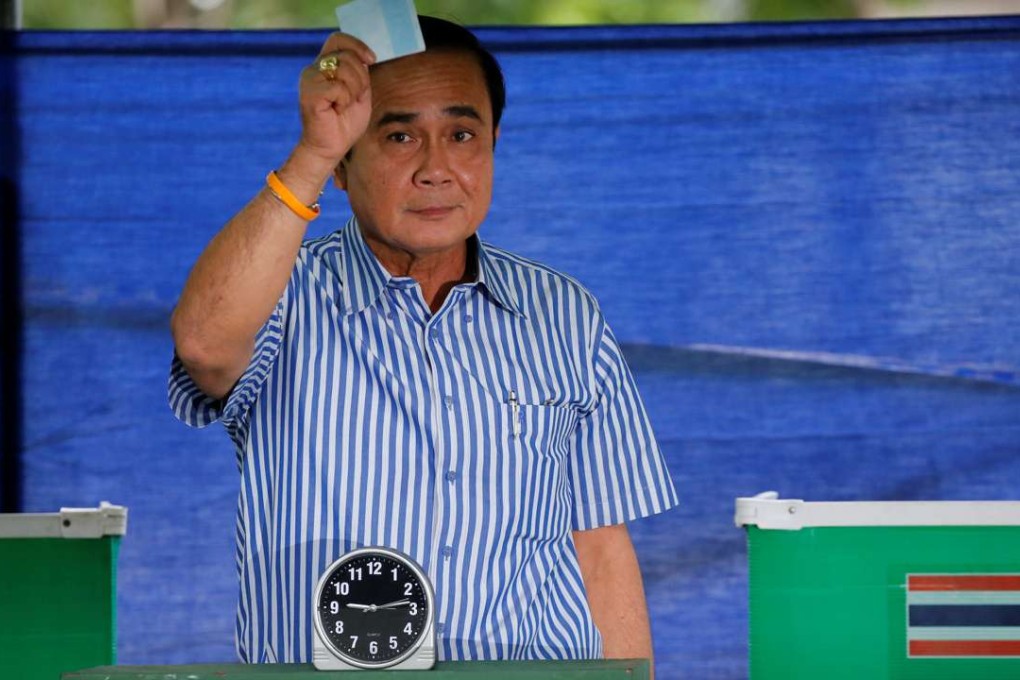Why Thailand’s junta feels it needs a veneer of legitimacy
With dictatorships going out of fashion, military turns to ‘hybrid politics’ in effort to free its hands from costly coercion – and take a tighter grip on power

Military juntas with autocratic agendas do not promise elections to cede power. Instead, they fabricate an appearance of democratic change in order to avoid it. More specifically, by allowing civilian governments to come to the fore, they hope to legitimise their now indirect, but continuing, rule.
In creating the appearance but not the substance of democratic change, the militaryis aligning its regime with a mode that has grown common around the world. It is often called ‘hybrid’ politics, and under it elections are heavily manipulated, yet still exude a whiff of competitiveness. Usually a single political party then dominates, as in Singapore, Malaysia, and Cambodia, regularly besting the opposition and ruling directly. But in Thailand, the military prevails. And with safeguards now installed, the military will stand back, content to let the election play out. It knows that any new government that emerges will be a fractious coalition, fronting for the military’s indirect but continuing rule.
